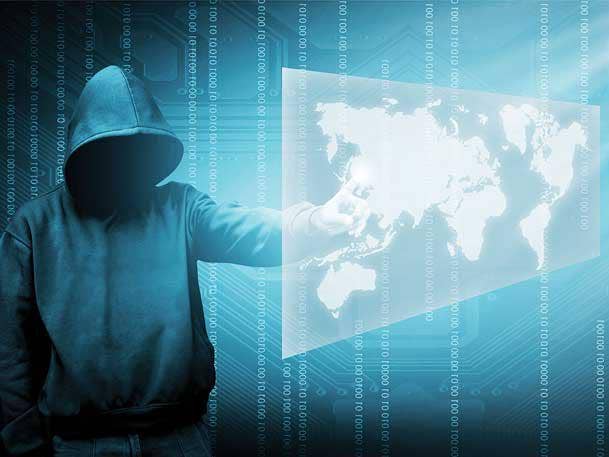N-able Reveals Sales Hit From SolarWinds Hack Amid Spin-Off
‘We believe the cyber incident has caused reputational harm to SolarWinds and also had an adverse impact on our reputation, new subscription sales and net retention rates,’ writes SolarWinds subsidiary N-able in an SEC filing.

N-able saw a decline in new subscription sales and expansion rates in December and January following public disclosure of the colossal SolarWinds Orion hack.
The Wakefield, Mass.-based remote monitoring and management (RMM) subsidiary of SolarWinds reduced investment in demand generation activities through January 2021 and saw some MSPs delay purchasing decisions after Russian hackers compromised 18,000 Orion clients through poisoned code. No malicious code was found in any products offered by N-able, which is spinning off from SolarWinds.
“As a part of SolarWinds and our prior branding as ‘SolarWinds MSP,’ the cyber incident has harmed, and is likely to continue to harm, our reputation, our MSP partner and employee relations and our operations and business,” N-able wrote. “We believe the cyber incident has caused reputational harm to SolarWinds and also had an adverse impact on our reputation, new subscription sales and net retention rates.”
[Related: 10 Bold Statements From SolarWinds MSP After The Orion Hack]
N-able said it has incurred significant costs around the SolarWinds hack related to investigations and initiatives intended to address damage to the company’s reputation, with customers deferring purchases or choosing to cancel or not renew their agreements or subscriptions with N-able. The company also expects to face more expenses as it works to enhance the security, monitoring and authentication of its products.
Following N-able’s resumption of regular demand generation activities in February, the company said it’s encouraged by recent engagements with both prospective and existing MSP partners. The company said it’s seen consistent renewal rates among its larger MSP partners and hasn’t observed any decline in the actual usage of its products. N-able addressed the SolarWinds hack in a registration statement filed with the Securities and Exchange Commission Monday.
“Based on trends in the later part of the first quarter of 2021, we believe that the adverse impacts of the cyber incident on our financial results will diminish over time in the absence of new discoveries or events,” N-able wrote in the 169-page SEC filing. N-able is set to launch this spring as an independent, publicly traded company focused on helping MSPs manage the IT environments of their SMB customers.
N-able had experienced robust growth prior to the SolarWinds hack, according to its registration statement, with sales jumping to $302.9 million in 2020, up 14.9 percent from $263.5 million in 2019 and 32.3 percent from $228.3 million in 2018. The company’s loss deepened to $7.2 million in 2020, 185 percent higher than the $2.5 million loss it recorded in 2019.
The impact of the SolarWinds hack wasn’t significant in N-able’s 2020 financial results given how late in the fourth quarter the breach was publicly disclosed, the company said. SolarWinds’ stock was down $0.28 (1.62 percent) to $17.01 per share shortly after trading opened Tuesday, which is 27.8 percent lower than the company’s trading price of $23.55 per share prior to the hack being revealed in December.
“We expect our operating expenses may increase over the next several years as we hire additional personnel, expand our operations and infrastructure, both domestically and internationally, pursue acquisitions and continue to develop our platform‘s functionalities,” N-able wrote in its filing.
N-able’s business with MSPs delivering more than $50,000 of annualized recurring revenue (ARR) has surged in recent years and accounted for 42 percent of the company’s ARR in 2020, up from 36 percent in 2019 and 30 percent in 2018. Some 1,473 MSPs had ARR of greater than $50,000 with N-able in 2020, up 32 percent from 1,117 MSPs in 2019 and 77 percent from 833 MSPs in 2018.
The company’s 25,000 MSP partners support more than 500,000 SMBs around the world, which the company defines as businesses with fewer than 1,000 employees. N-able had 1,177 employees as of Dec. 31, with 231—or less than 20 percent—based in theU.S. and 946 located outside the U.S. N-able had historically been based in Ottawa, Ontario.
N-able achieved 48 percent—or $144.8 million—of its 2020 revenue from the U.S., 10 percent—or $31.6 million—from the United Kingdom, and the remaining 42 percent—or $126.4 million—from other sites abroad. LogicNow, which joined forces with N-able in 2016 to form SolarWinds MSP, was based in Dundee, Scotland.
John Pagliuca, 44, will serve as N-able CEO, and received $6.7 million of compensation in 2020, driven primarily by $5.9 million in stock awards, according to the registration statement. Kathleen Pai, 38, will serve as N-able’s chief people office and earned $4.7 million in compensation in 2020, while Frank Colletti, 47, will serve as N-able’s senior vice president of worldwide sales and was granted $1.9 million in compensation.
N-able indicated that Silver Lake and Thoma Bravo each own at least 5 percent of the company’s stock, although exactly how much they own wasn’t disclosed in the registration statement. Silver Lake and Thoma Bravo took SolarWinds private in February 2016 after a $4.5 billion purchase of the company. SolarWinds was privately held for just 32 months before going through its second IPO in late 2018.